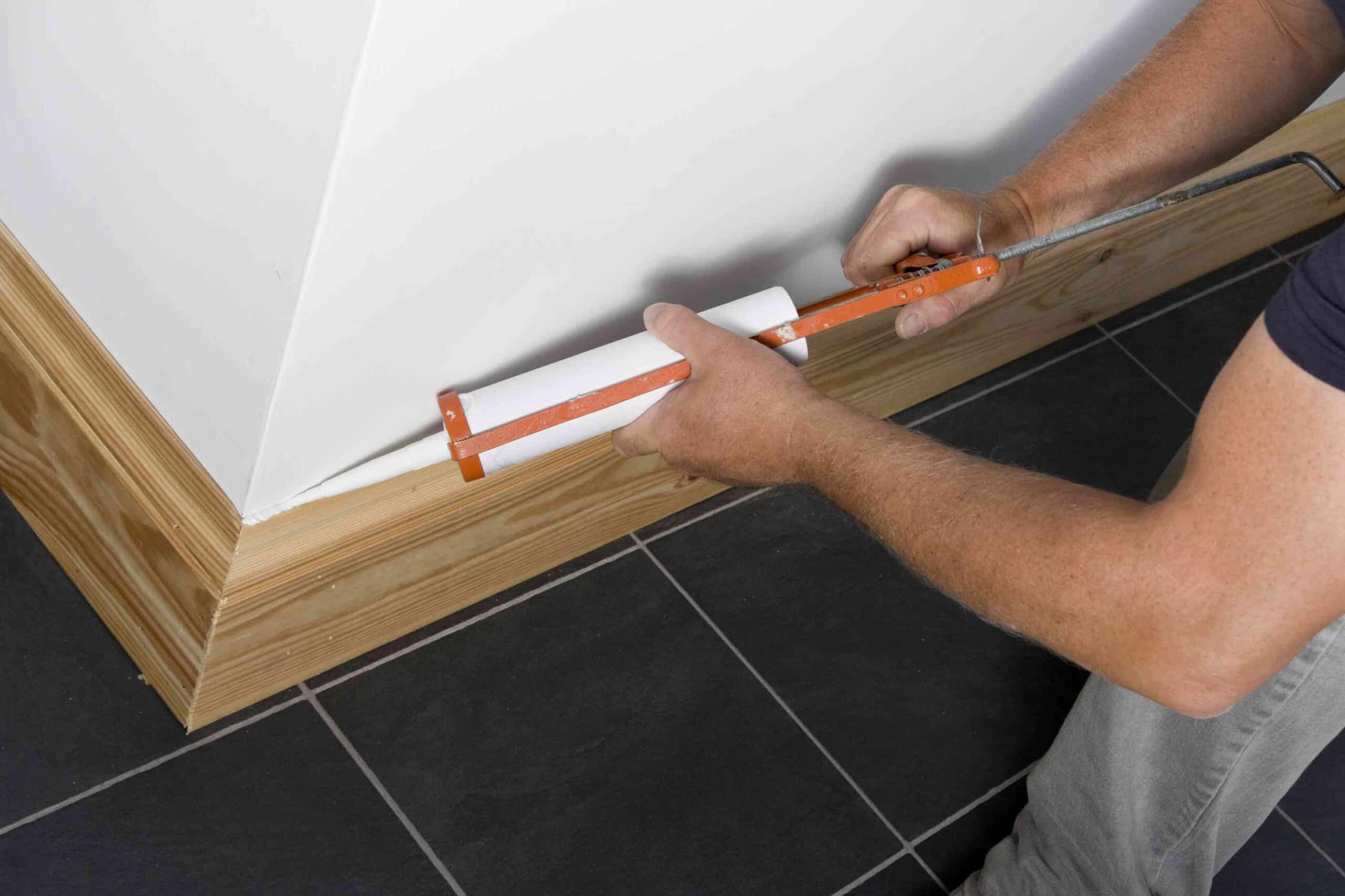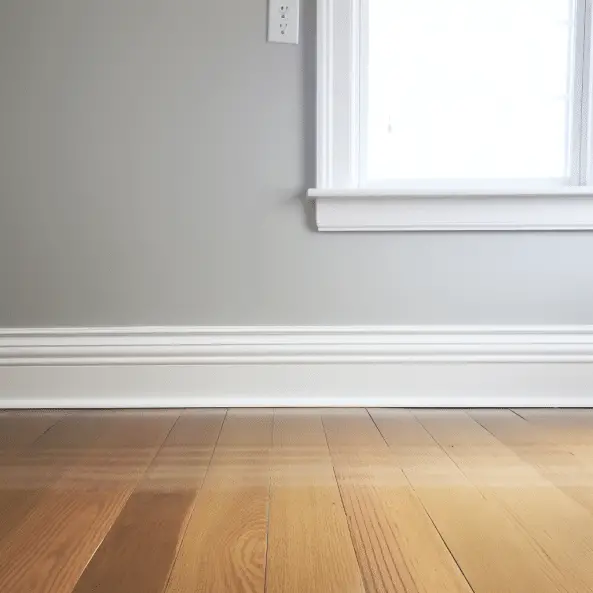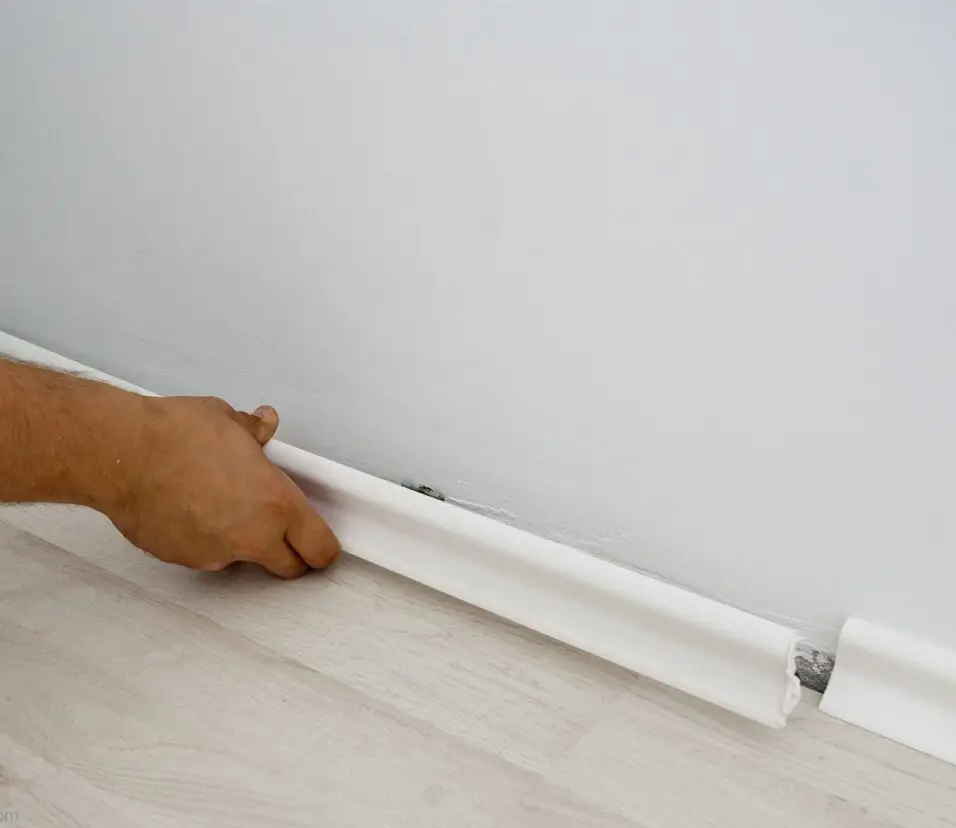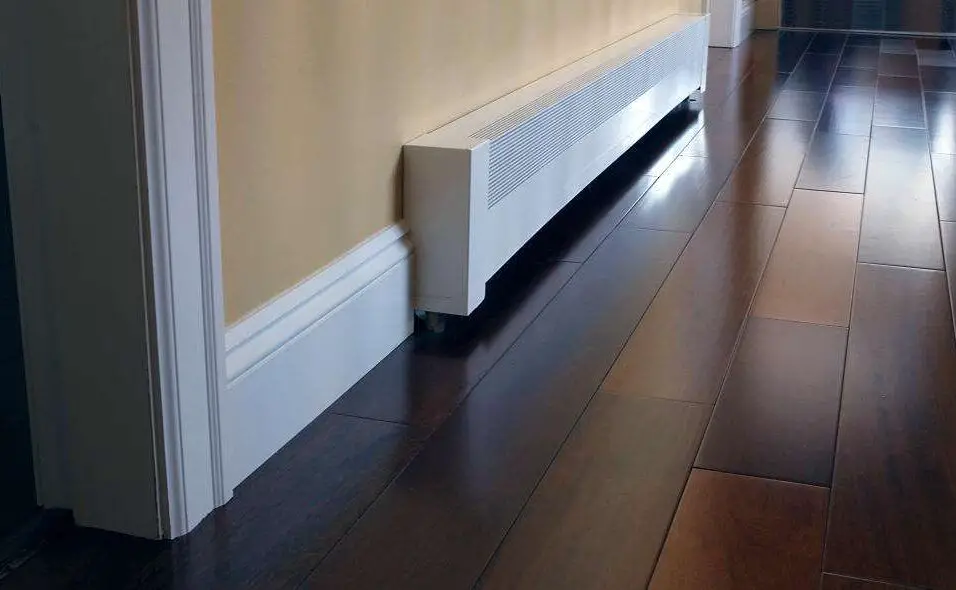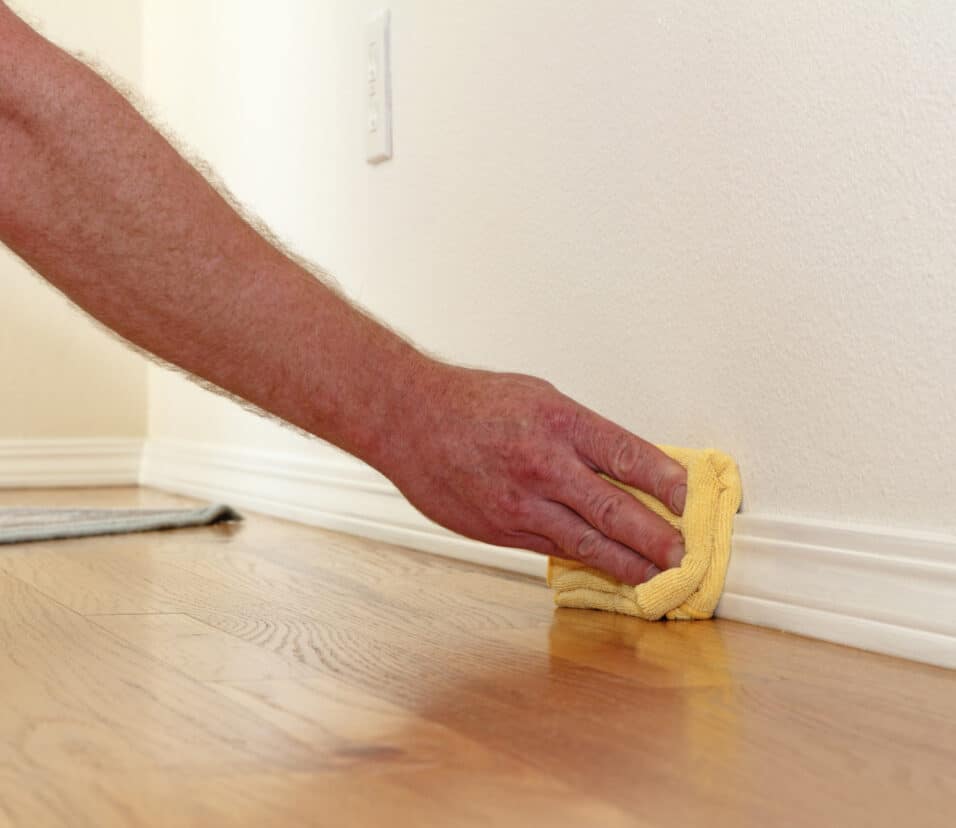How To Stop Baseboard Heater From Making Noise
Introduction
How To Stop Baseboard Heater From Making Noise: Baseboard heaters are a popular choice for heating homes, as they are efficient and provide a consistent source of warmth. However, one common issue that many homeowners face is the noise that these heaters can make. The constant clicking, popping, or banging sounds can be not only annoying but also disruptive to your daily life. If you are wondering how to stop your baseboard heater from making noise, you have come to the right place.
There are several reasons why your paint baseboard heater may be making noise. One of the most common causes is the expansion and contraction of the metal components as they heat up and cool down. This can result in clicking or popping sounds. Additionally, loose or damaged parts, such as fins or brackets, can also contribute to the noise.
There are several steps you can take to silence your noisy baseboard heater. First, it is important to ensure that the heater is securely mounted to the wall. Loose brackets or screws can cause the unit to vibrate, resulting in noise. Tighten any loose screws or brackets and make sure the heater is properly secured.
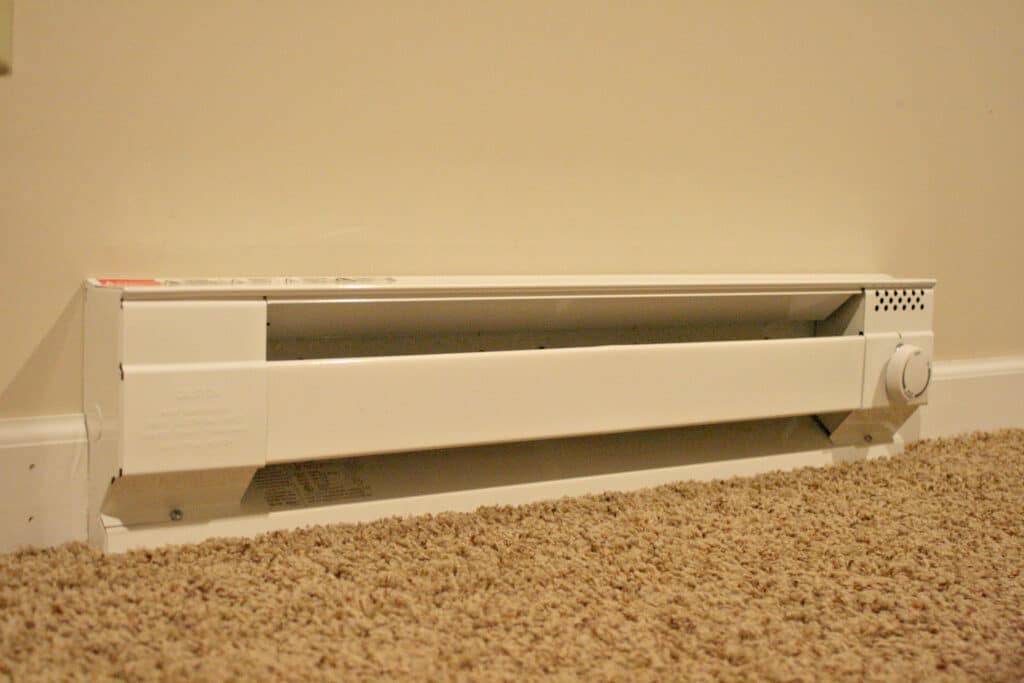
Why does my baseboard heater make so much noise?
Baseboard heaters are a popular choice for heating homes because of their efficiency and affordability. However, one common issue that homeowners often face with these heaters is excessive noise. If you have noticed that your baseboard heater is making a lot of noise, there could be several reasons behind it.
One possible reason for the noise is air trapped in the system. Over time, air can get trapped in the pipes or the heating element of the baseboard heater. When the heater is turned on, this trapped air can cause a gurgling or hissing sound. To fix this issue, you can try bleeding the air out of the system. This involves opening a valve or a bleed screw to release the trapped air. However, if you are not familiar with the process, it is best to consult a professional to avoid any damage to the heater.
Another reason for the noise could be loose components. Baseboard heaters consist of various components such as fins, covers, and brackets. In such cases, you can try tightening the loose components to reduce the noise. However, if the noise persists, it is advisable to seek professional help to ensure that the heater is properly secured.
Additionally, the noise could be caused by the expansion and contraction of the heating element. Baseboard heaters contain a heating element that expands when it heats up and contracts when it cools down. This expansion and contraction can create a clicking or popping sound. While this noise is normal to some extent, excessive noise could indicate a problem with the heating element.
How do I stop my heater from making noise?
Firstly, it’s important to identify the source of the noise. Is it coming from the heater unit itself, or is it being caused by the ductwork? If the noise is coming from the heater unit, it could be due to a loose or worn-out part. In this case, you may need to call a professional to inspect and repair the unit. On the other hand, if the noise is coming from the ductwork, it could be due to loose connections or a buildup of debris. In this case, you may be able to fix the problem yourself.
Secondly, check the air filters. Dirty or clogged air filters can restrict airflow and cause the heater to work harder, which can lead to increased noise. Regularly cleaning or replacing the air filters can help prevent this issue and keep your heater running smoothly and quietly.
Thirdly, consider the location of your heater. If it’s installed in a small, enclosed space, such as a closet or utility room, the noise may be amplified. Moving the heater to a more open area or adding insulation to the surrounding walls can help reduce the noise level.
Additionally, check the fan blades. Over time, dust and debris can accumulate on the fan blades, causing them to become unbalanced and produce noise. Cleaning the fan blades with a soft brush or cloth can help eliminate this problem and restore quiet operation.
Why does heater sound so loud?
Heaters are essential appliances that provide warmth and comfort during the cold winter months. However, one common complaint that many people have about heaters is that they can be incredibly loud. The noise produced by heaters can range from a gentle hum to a loud, annoying racket. But why do heaters sound so loud?
One reason why heaters can be noisy is due to the fan that is often built into them. The fan is responsible for circulating the warm air produced by the heater throughout the room. As the fan spins, it creates vibrations that can be amplified by the metal or plastic casing of the heater, resulting in a louder noise. Additionally, the fan itself can generate noise as it moves through the air, especially if it is not properly balanced or if there is debris stuck in the blades.
Another factor that contributes to the loudness of heaters is the type of heating element used. Some heaters use a heating coil or a ceramic element to generate heat. These elements can produce a crackling or popping sound as they heat up and cool down. This noise can be particularly noticeable in older or poorly maintained heaters. In contrast, newer models may use infrared heating technology, which tends to be quieter.
The size and design of the heater can also affect its noise level. Smaller heaters, especially portable ones, are often louder than larger, stationary models. This is because smaller heaters have less space for sound insulation and may have less powerful fans. Additionally, the design of the heater can impact its noise level. Heaters with a sleek, modern design may have better sound insulation and be quieter compared to heaters with a more basic or outdated design.
Are baseboard heaters good or bad?
Baseboard heaters can be a great option for heating your home, but like any heating system, they have their pros and cons. Whether baseboard heaters are good or bad depends on various factors such as your specific heating needs, the size of your space, and your budget. In this article, we will explore the advantages and disadvantages of baseboard heaters to help you make an informed decision.
Advantages of baseboard heaters
One of the main advantages of baseboard heaters is their cost-effectiveness. These heaters are generally more affordable to install compared to other heating systems, such as central heating or radiant floor heating. Additionally, baseboard heaters are relatively easy to install, making them a popular choice for homeowners who want a simple and efficient heating solution.
Another advantage of baseboard heaters is their individual room control. Unlike central heating systems, which heat the entire house at once, baseboard heaters allow you to control the temperature in each room separately. This can be particularly beneficial if you have rooms that are rarely used or if different family members prefer different temperatures.
Disadvantages of baseboard heaters
One of the main disadvantages of baseboard heaters is their energy efficiency. These heaters use electric resistance to generate heat, which can be less efficient compared to other heating methods. This means that baseboard heaters may consume more electricity and result in higher energy bills.
Another disadvantage of baseboard heaters is their slower heating time. Unlike forced-air systems that can quickly heat up a room, baseboard heaters take longer to reach the desired temperature. This can be inconvenient if you need immediate warmth or if you frequently change the temperature in your home.
Is it okay if my heater makes noise?
It is not uncommon for heaters to make noise, and in most cases, it is perfectly normal. However, the level and type of noise can vary depending on the type of heater you have and the specific issue causing the noise. In some cases, the noise may be a sign of a problem that needs to be addressed, while in others, it may simply be a normal part of the heater’s operation.
One common cause of noise in heaters is the expansion and contraction of the metal components as they heat up and cool down. This can result in creaking or popping sounds, especially when the heater is first turned on or off. These noises are typically harmless and do not indicate any issues with the heater’s performance or safety.
Another potential source of noise in heaters is the movement of air through the system. Forced-air heaters, such as furnaces, can produce a variety of sounds as the air is pushed through the ducts and vents. This can include a gentle whooshing sound or even a slight rattling if there are loose components in the system. Again, these noises are generally not cause for concern and are a normal part of the heater’s operation.
However, there are some instances where heater noise may indicate a problem that needs to be addressed. For example, if you hear a loud banging or clanging sound coming from your heater, it could be a sign of a loose or broken component. In this case, it is important to have the heater inspected and repaired to prevent further damage or potential safety hazards.
Potential Causes of Baseboard Heater Noise
Baseboard heaters can make noise due to various reasons. One common cause is the expansion and contraction of the heating elements as they heat up and cool down. This can result in clicking or popping sounds. Another common cause is the buildup of dust or debris on the heating elements, which can create a burning smell or crackling noise. Additionally, loose or faulty electrical connections can cause buzzing or humming noises in baseboard heaters.
It is important to address these issues promptly, as they can indicate potential problems with the heater’s performance or safety. If you notice any unusual noises coming from your baseboard heater, it is recommended to turn off the power and inspect the unit for any visible signs of damage or loose components. Cleaning the heating elements regularly and ensuring proper electrical connections can help prevent noise issues in baseboard heaters.
Common causes of noise in baseboard heaters include expansion and contraction of heating elements, buildup of dust or debris, and loose electrical connections. Regular maintenance and inspection can help prevent and address these issues.
Are there any specific steps or techniques to troubleshoot and fix a noisy baseboard heater?
When dealing with a noisy baseboard heater, there are several steps and techniques you can try to troubleshoot and fix the issue. Firstly, it is important to identify the source of the noise. Common causes of noise in baseboard heaters include loose components, air trapped in the system, or a malfunctioning motor.
To troubleshoot the issue, start by checking for any loose components. Tighten any screws or bolts that may have come loose during operation. Additionally, inspect the fins and ensure they are not bent or damaged, as this can also cause noise. If you find any bent fins, gently straighten them using a fin comb.
If the noise persists, it may be due to air trapped in the system. Bleeding the air out of the baseboard heater can help alleviate the noise. Locate the bleed valve, typically found at the end of the heater, and open it slightly to release any trapped air. Be sure to have a container or towel handy to catch any water that may come out.
Are there any recommended maintenance practices to prevent baseboard heaters from making noise?
Yes, there are several recommended maintenance practices that can help prevent baseboard heaters from making noise. One important step is to regularly clean the heating elements and fins of the baseboard heater. Dust and debris can accumulate on these components, causing them to vibrate and create noise. Use a soft brush or vacuum cleaner to remove any dirt or dust that has built up.
Another maintenance practice is to check and tighten any loose screws or brackets on the baseboard heater. Over time, these components can become loose and cause rattling or vibrating noises. Use a screwdriver or wrench to tighten any loose parts and ensure they are securely fastened.
It is important to inspect the baseboard heater for any signs of damage or wear. Cracks or gaps in the housing can allow air to escape, leading to whistling or hissing noises. If any damage is found, it is recommended to repair or replace the affected parts to prevent further noise issues.
Are there any specific products or accessories available to reduce or eliminate noise in baseboard heaters?
Yes, there are several products and accessories available in the market that can help reduce or eliminate noise in baseboard heaters. One such product is a baseboard heater cover. These covers are designed to fit over the existing baseboard heater and provide a barrier between the heater and the room, reducing the noise caused by the heater’s operation. These covers are typically made of durable materials such as steel or aluminum and are available in various sizes to fit different baseboard heater models.
Another product that can help reduce noise in baseboard heaters is a noise-reducing pad or insulation. These pads are placed between the baseboard heater and the wall, absorbing and dampening the vibrations and noise produced by the heater. They are usually made of materials such as rubber or foam and are easy to install. Additionally, there are noise-reducing accessories such as vibration isolators or dampers that can be attached to the baseboard heater to minimize noise.
Are there any safety considerations to keep in mind when attempting to stop a baseboard heater from making noise?
When attempting to stop a baseboard heater from making noise, it is important to prioritize safety. First and foremost, always ensure that the power to the heater is turned off before attempting any maintenance or repairs. This can be done by switching off the circuit breaker or unplugging the heater from the power source. Failure to do so can result in electric shock or other serious injuries.
Additionally, it is crucial to follow the manufacturer’s instructions and guidelines when working on a baseboard heater. This includes using the correct tools and equipment, as well as understanding the specific steps involved in troubleshooting and fixing the issue. If you are unsure or uncomfortable with any aspect of the process, it is recommended to consult a professional electrician or HVAC technician.

Conclusion
Overall, there are several effective methods to stop a baseboard heater from making noise. One of the first steps is to identify the source of the noise, whether it is due to loose components, trapped air, or a malfunctioning thermostat. Once the source is determined, appropriate actions can be taken to address the issue. Tightening loose screws, bleeding the air out of the system, or replacing faulty parts are some of the common solutions that can effectively eliminate the noise.
Regular maintenance and cleaning of the baseboard heater can also help prevent noise issues. Dust and debris can accumulate over time, causing the heater to operate less efficiently and produce unwanted sounds. By regularly cleaning the unit and ensuring proper airflow, the chances of noise occurring can be significantly reduced. Additionally, keeping the surrounding area clear of any obstructions can also contribute to a quieter operation of the baseboard heater.
Another important factor to consider is the insulation of the baseboard heater. Poor insulation can lead to vibrations and rattling noises. By adding insulation materials, such as foam or rubber pads, between the heater and the wall, these vibrations can be dampened, resulting in a quieter operation. It is also advisable to check the condition of the insulation in the walls and floors surrounding the heater, as any gaps or cracks can allow sound to travel more easily.
The noise issue of a baseboard heater requires a systematic approach. By identifying the source of the noise and taking appropriate actions, such as tightening screws, bleeding air, or replacing faulty parts, the noise can be effectively eliminated. Regular maintenance and cleaning, as well as proper insulation, are also crucial in preventing noise problems. By implementing these strategies, individuals can enjoy a quieter and more comfortable environment in their homes or offices.



